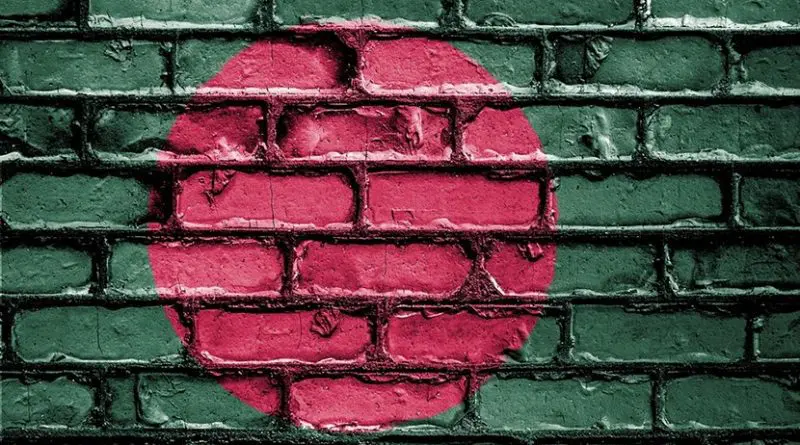Bangladesh Bloggers Murder: Islamists Can Never Win – Oped
Avijit Roy had been threatened with death frequently but he had never taken it seriously. A senior police official, when pulled up for failing to protect him, made the point: “He had never asked for security, so what do we do”. Dhaka is the city Avijit was born and grew up in, and like many a free thinker in Bangladesh, he was unwilling to surrender to fear. His last blog post in bdnews24.com, where I work as senior editor, was filed five hours before his death.
Like many other free thinkers in Bangladesh, Avijit received death threats from Islamist bloggers who went to the extent of announcing on the Internet that he cannot be killed when in the US but he will be killed once he comes back to the country.
Bangladesh has a powerful tradition of free thinking and secularism born out of the spirit of the 1971 Liberation War. The new generation of bloggers who take on the Islamist fanatics in the battle for Bangladesh’s soul are the latest in the long generation of Bengalis who have fought against communalism and fundamentalism. Their numbers and the intensity of their commitment have grown over the years. Two years ago, they hit the streets of Dhaka in huge numbers and turned Shahbagh Square into a showpiece of mass mobilisation against Islamist fundamentalism at a time when Cairo’s Tahrir Square was taken over by the supporters of Muslim Brotherhood. Their agitation forced the government to amend the law for trial of 1971 war criminals and led to the hanging of Jamaat-e-Islami leader Abdul Quader Molla. Avijit, a bio-engineer and a naturalised US citizen, was one of the spearheads of this progressive blogging fraternity in Bangladesh.
But even as the Shahbagh movement was gathering strength, blogger leader Rajib Haider was murdered near his home in Dhaka’s Mirpur in February 2013. Two years later, in the same month when Bangladesh celebrates its Amar Ekushe (Immortal 21st – or 21st of February for saluting the martyrs of the Bengali Language movement) and the wonderful Bengal spring, you have a new martyr for the cause. In many ways, Avijit Roy’s murder resembles those of Rajib Haider and the Rajshahi University teachers, Mohammad Yunus and Shafiul Islam. Or the murderous attack on popular writer Humayun Azad in 2004, who later died in Germany while under treatment.
The 1999 attack on popular poet Shamshur Rahman was the beginning of this new wave of periodic attacks against the secular Bengali intelligentsia, whose undying spirit made Bangladesh a reality. Islamist radicals, many returning from the jihad in Afghanistan, were organised into radical underground outfits like the Harkat-ul-Jihad-al-Islam (HuJI) or later the Jamaat-ul-Mujahideen Bangladesh (JMB). One can find a striking resemblance between these new Islamist radical groups and the Pakistan army and its local cohorts like the Al Badr, Al Shams and the Jamaat-e-Islami.
Barely two days before Dhaka fell to the Indian Army and the Mukti Bahini in December 1971, the Pakistanis and their cohorts had picked up the leading lights of the Bengali cultural brigade and brutally murdered them by dozens. The nation continues to observe December 14 as ‘Shahid Buddhijibi Dibas’ (Martyred Intellectuals Day) to remember the likes of Shahidullah Kaiser and Munir Choudhury who were butchered by Islamist fanatics supporting the Pakistani war effort. For Pakistan’s military rulers, these intellectuals were the specific targets because they were the ones who sold the dream of an independent secular Bangladesh to millions of their people.
Lawrence Lifschultz describes Bangladesh as an ‘unfinished revolution’. The radical Islamist challenge has grown over the years since the Afghan jihad and 9/11 created a space for pan-Islamist jihad across the world. Secular Bangladesh anchored by powerful Bengali linguistic nationalism is an anathema for the thought leaders of the global jihad. No wonder, Ayman-Al-Zawahiri calls for a ‘powerful uprising’ against the present Awami League government. If Hasina government’s determination to push for the 1971 war crimes trials is part of the effort to complete the ‘unfinished revolution’, the attacks on bloggers Rajib Haider and Avijit Roy, teachers Mohammed Yunus and Saiful Islam, writer Humayun Azad or poet Shamsur Rahman are all part of this ‘counter revolution’ – to turn Bangladesh on its head and bury the spirit of 1971.
So for those who see the violence during the Bangladesh Nationalist Party-sponsored agitation as a ‘battle of the Begums’, the murder of Avijit Roy will hopefully drive home the point that Bangladesh stands dangerously close to a violent confrontation that involves a fundamental challenge to the spirit of 1971 that led to its birth. That confrontation is linked to the one for political power, of the street battles and the fire bombings, because without political power neither the unfinished revolution nor the counter revolution can be won. Avijit Roy was murdered not by a foreign jihadi using sophisticated weapons but by homegrown fanatics using machetes, by people who know him well and who surely followed him for a week since he landed in Dhaka and started visiting the Ekushe Book Fair to launch his latest books. Books that advocated the spirit of science and the voice of reason in a world threatened by religious fanaticism.
Machete-wielding assailants hacked to death Roy on Feb 26 while returning from a book fair.
His murder will not silence the voice of secularism and reason in Bangladesh, if the responses of free thinkers and bloggers are anything to go by. The country has more men and women of courage and conviction espousing the spirit of 1971 than the jihadis can possibly kill. They transcend generations. But the police failure to track down the killers of Avijit Roy so far does point to serious weaknesses of state power in the fight against Islamist radicalism. Months of relentless violence during the ongoing BNP-sponsored transport blockade seems to be adversely impacting on the police and security forces.

